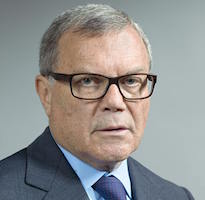
[Update: on March 17, Gustavo Martinez resigned his post at JWT.]
When it rains, it pours: CEOs of two media agencies owned by U.K.-based WPP (which also owns Burson-Marsteller, Hill+Knowlton Strategies, Ogilvy & Mather, Cohn & Wolfe and many others) are under fire for alleged offensive conduct.
First, an executive at ad agency J. Walter Thompson (JWT) has filed suit in Manhattan federal court accusing chief executive Gustavo Martinez of persistent racist and sexist behavior, including offensive remarks about black people and Jews, sexually threatening remarks about female staff and even grabbing the plaintiff, chief communications officer Erin Johnson, by the throat on several occasions, according to The Wall Street Journal.
Second, an anonymous group of more than 10 people, including some who claim to be staffers at ad and marketing agency Kinetic Worldwide, sent an email to WPP CEO Martin Sorrell calling for the resignation of Mauricio Sabogal, Kinetic's CEO, according to an article in Ad Age. The email complains of a Spanish-language post Sabogal made on his Tumblr page, in which he refers to Americans as "gringos" and characterizes them as ignorant, naive and uncultured. Sabogal also tweeted a link to the post; both the post and the tweet have now been deleted.

Martinez has made a statement denying all allegations; Sabogal has made no statement as of yet; WPP has merely said "we're investigating," and reportedly sent a memo to senior execs that its lawyers have found nothing to substantiate the charges against Martinez.
What's a big multinational parent company to do to salvage its reputation? Gene Grabowski, partner at D.C. PR firm kglobal, stresses that although each case is different, unequivocal communication, both internal and external, is necessary in both. "Communications is the heart of what these organizations do," he says. "If they can't communicate what is acceptable, that is a threat for the entire organization."
Most organizations, Grabowski says, have guidelines for what any person puts out on social media, but "unfortunately, sometimes senior executives are more emboldened" to let controversial opinions fly. In Sabogal's case, he continues, it seems clear that some sort of disciplinary action is warranted, along with a memo to the staff (that is crafted with public consumption in mind) that lays out that it is everyone's responsibility to understand that when they speak—especially execs—they speak for the entire organization.
The suit against Martinez is different, because wrongdoing has not been proven and immediate suspension could open WPP up to further litigation. However, WPP "need[s] to put out a strong statement saying that the organization does not in any way tolerate the kind of behavior that has been alleged, and if found to be true, will take all disciplinary action necessary," says Grabowski.
Follow Ian James Wright on Twitter: @ianwright0101
